[1]
Amrei and her colleague Bianca Bergande are responsible, among other things, for the pre-course in programming (opens in a new window), which is offered twice a year before the start of each semester for first-year students of the IMA (opens in a new window), Information Management and Corporate Communications (opens in a new window) (IMUK) programs and since 2018 also for candidates for the new Game Production and Management (opens in a new window) program.
The aim of the event: to familiarize them with the basic principles of programming in a playful way and to arouse their curiosity about the contents of their incipient studies – and all this as simply as possible, because of course a course that is attended voluntarily must not yet convey any concrete study contents. Rather, the aim is to offer beginners an initial approach to programming and to lower the inhibition threshold with regard to technical access: What hardware and software do you need and how can this technology be operated? How are commands programmed? What are so-called conditions and loops in the programming language?
Experimental improvement of software engineering learning (EVELIN)
HNUs subproject (opens in a new window) of the Bavarian joint project has been dedicated to the experimental improvement of software engineering learning since 2017. The focus is on gender-equitable teaching, activating teaching methods and basic research with a focus on playful scenarios that make students fit for professional practice – either through project work with agile methods or through self-determined learning and teaching, such as in bar camps. In addition to physical computing in the form of intelligent robots and laboratory vehicles, new media environments are also used.
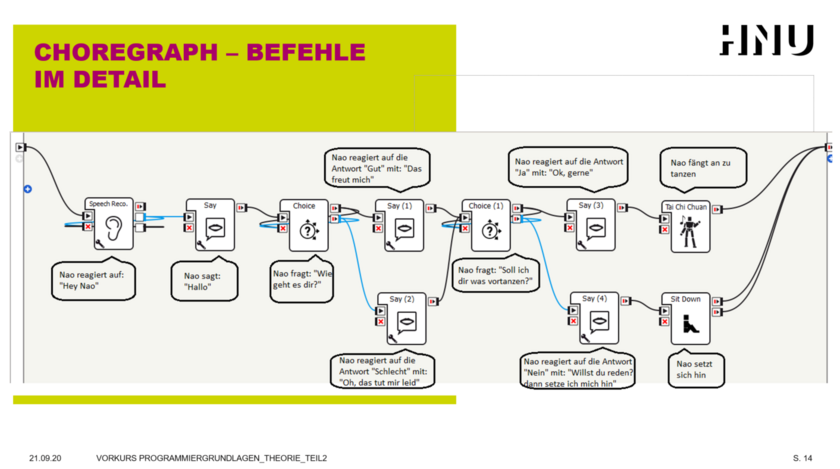
[2]
While she and her colleague Bianca carry out practice-oriented research and prepare their results for scientific papers in their everyday work as academic employees, they have to break down their own subject area back to its core in such didactic formats, explains Amrei. Such a didactic concept naturally needs to be well thought out, especially since the students come to the course not only with different previous knowledge, but also with very different expectations – and this time also in a virtual way. Already the pre-course in the summer semester had to be cancelled at short notice due to COVID19 contact restrictions; it was clear early on that the course should be translated completely into digital this winter semester.
[3]
Normally, the preliminary course Programming Basics is all about the functional logic of humanoid robots: The participants learn on site and on the object how to operate the small Lego and NAO robots from the HNU IMA Lab (opens in a new window) and how to feed them with commands. Working with the NAOs is out of the question due to a lack of licenses for an alternative online simulation. But it is no coincidence that Amrei and Bianca are active in the EVELIN project, which is currently developing innovative teaching and learning methods for software engineering topics: They become inventive. Although the preliminary course should not yet be about learning and using concrete programming languages – but building first apps and getting a feeling for the structure and functional logic of programs is also possible digitally. So the two academic researchers design the course in video conferencing mode, research and test suitable tools for application development and plan smaller project groups for an "app competition".
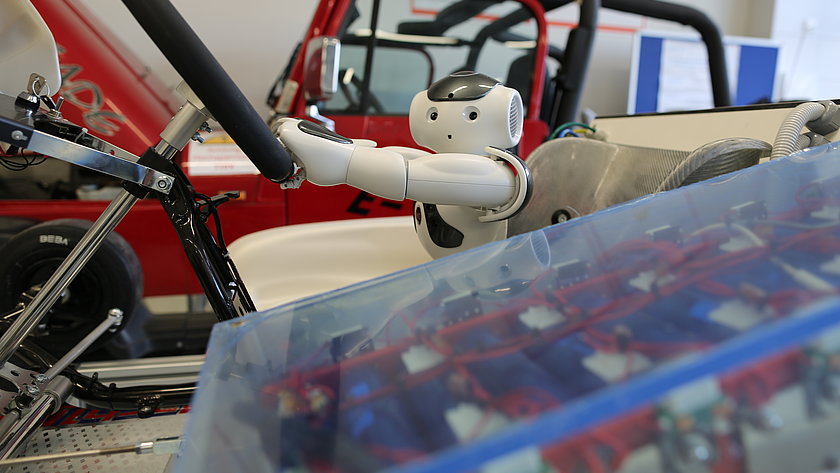
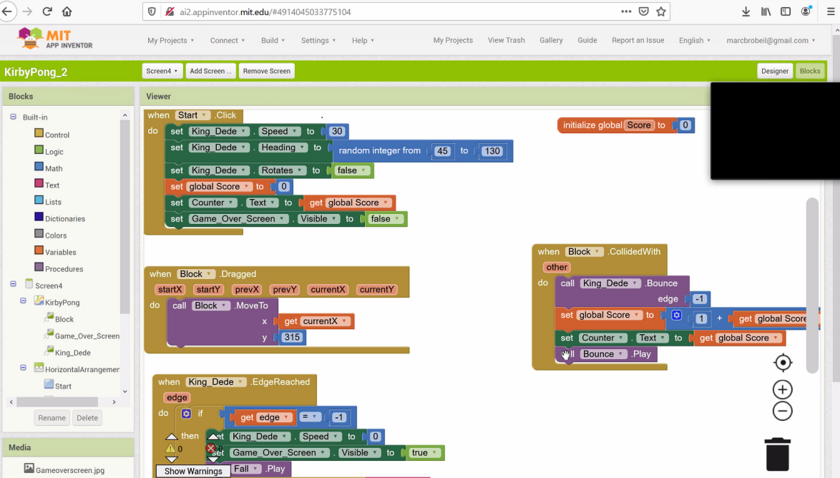

[4]
And what is the best way to do this? As in the presence format: as vividly as possible. For example, the team around Prof. Dr. Phillip Brune (opens in a new window), professor for business information system at HNU, explained the basic principle of conditions (the setting of "true" vs. "false") and loops (the repeated execution of these instructions) in programming using the example of a pancake recipe: The participants learn which recipe steps have to be executed in which order so that a predictable result can be achieved – baking with codes, that is. In Scratch, a programming language for beginners, the students then teach the character "Dot" to speak and develop a program that calculates random numbers.
And then the about 40 participants finally get to bake their own pancakes: With active support from HNU tutors they plan and program their own apps in small groups. This was made possible by the browser-based MIT-App INVENTOR, which requires no previous knowledge of the program – its user interface is based on drag & drop, so after a few exercises the participants can quickly try out applications themselves. The task: To design an application that they lack even in their everyday life – and to provide an attractive design in terms of a good user experience.
[5]
The result is, for example, an application for shared flat searches based on the matching principle, a digital shopping list (photo) and an app for moviegoers – and a group devotes itself to Kirby's Adventures and uses INVENTOR to recreate the classic game (photo).
Looking back, especially the coding newbies are surprised "what you can do and what is behind it" – and this is exactly what Amrei and Bianca want to achieve with their preliminary course: To give first-year students an impression of how programming works and to take away possible uncertainties and reservations.
Although this winter semester is of course different from the previous semesters on campus, the majority of participants report back on how much they enjoyed the contact in the virtual small groups and the exchange in breakout sessions. "The digital implementation of the pre-course went surprisingly smoothly, not only in terms of subject matter, but also in terms of interaction overall," sums up Amrei, who is glad that the digital teaching methods are well received in these special times. "I hope that we can continue to improve in this area and offer exciting digital services – in addition to the 'normal' teaching on site.
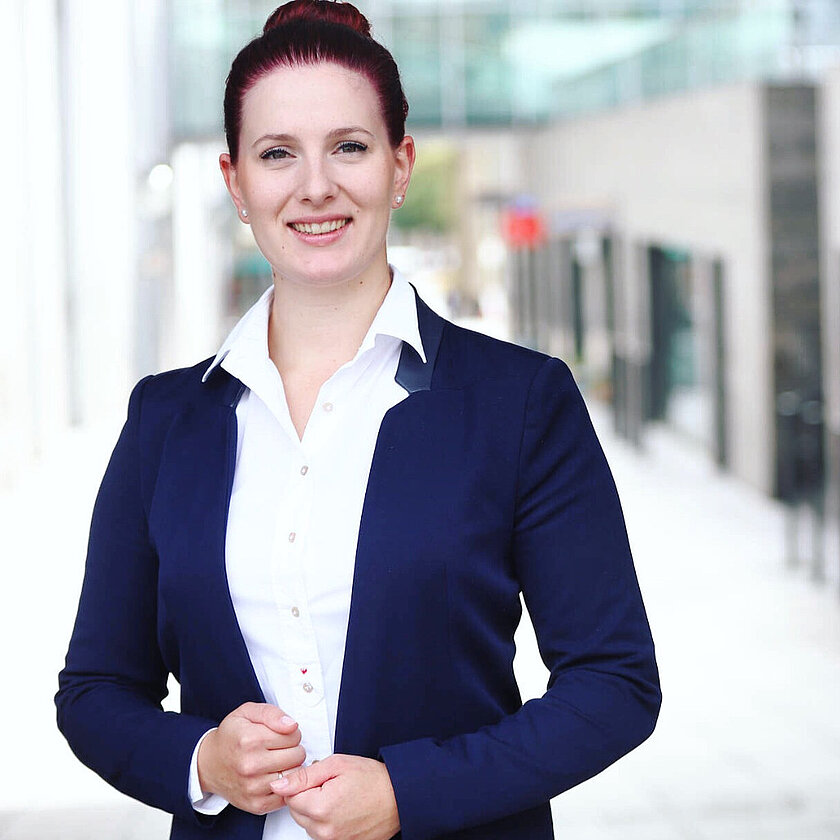
Infobox Amrei
When I am not researching/working, then ...
... you will find me mostly with my horse
My current reading:
"The Principle of the Pyramid" by Barbara Minto
My field of expertise in three words:
Innovation, digitization, motivation
My next publication will ...
... refer to an experiment in software engineering education
Scientific work/doctoral studies is ...
... for me the perfect start into my further working life, both academically and as a founder of a start-up
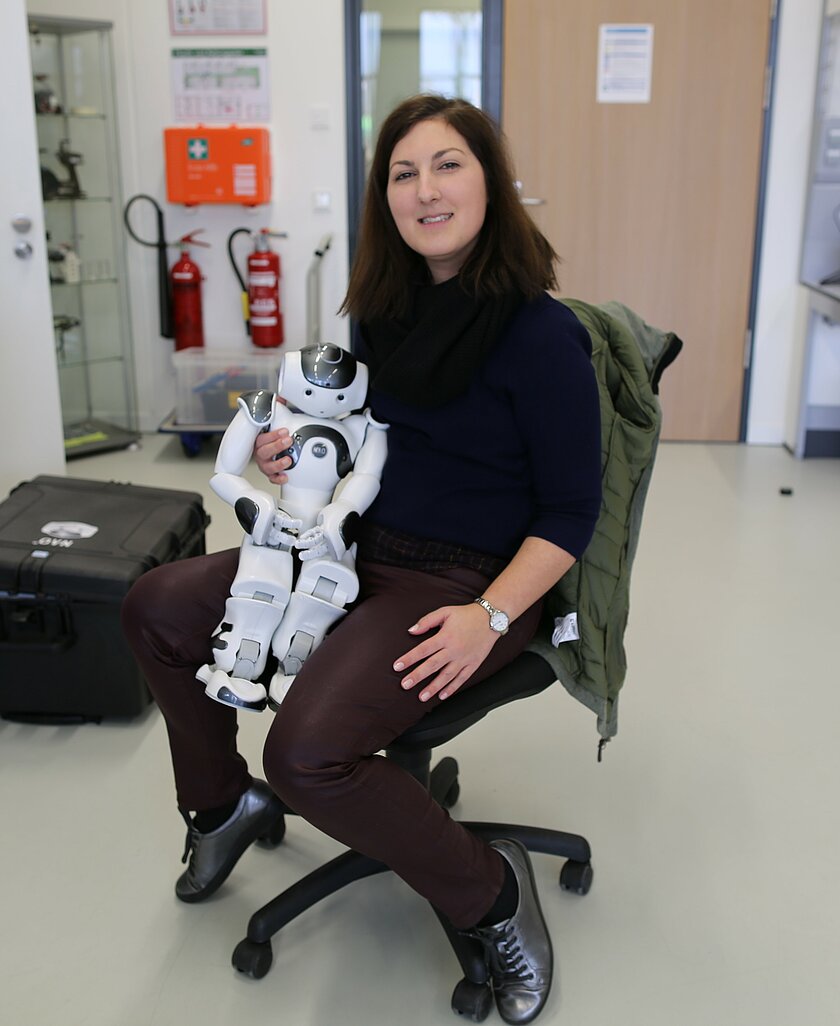
When I am not researching/working, then ...
... I listen to music, try out new recipes or plan beautiful trips
My current reading:
"Sapiens – a brief history of humankind" (Yuval Noah Harari) – very illuminating and entertaining
My field of expertise in three words:
Knowledge, Understanding, Mediation
My next publication will ...
... present the results of a wonderful collaboration
Scientific work/docoral studies is ...
... the opportunity to deepen your knowledge in an exciting field and to grow beyond yourself
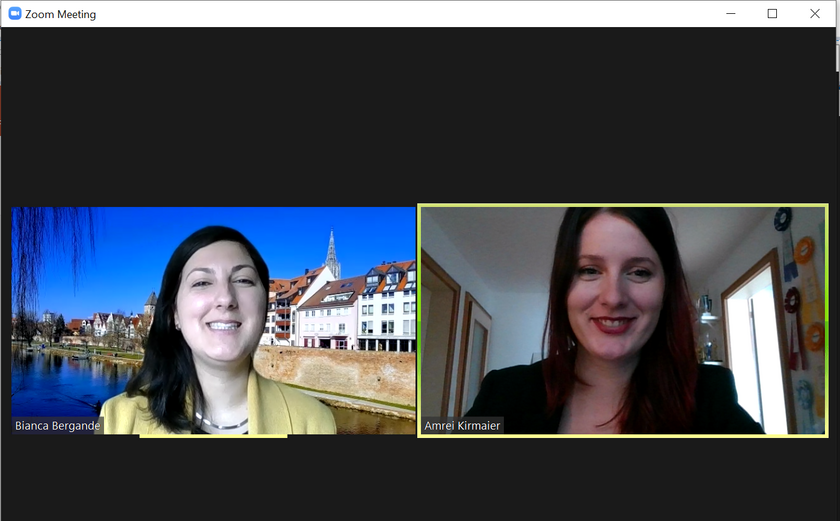
Amrei, who studied Information Management Automotive (IMA) at HNU, worked as a business analyst in IT consulting for three years after her studies before she founded her own start-up "Preparents" in the telehealth sector last year. At the same time she fills a 50% research assistant position in the HNU joint project EVELIN since 2019. The 25-year-old has another string to her bow because it offers her both entrepreneurial freedom and the security of public service – and is a door opener for a possible academic career: She would like to continue working as a research assistant in the future and is planning a part-time Master's degree.






